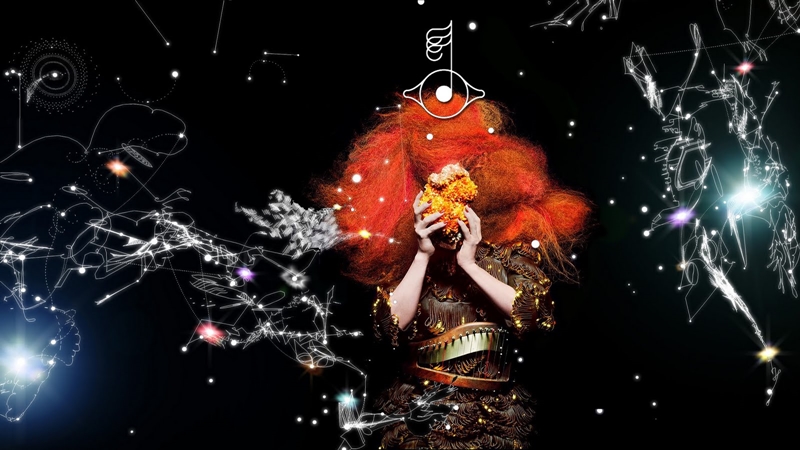Art & Exhibitions
MoMA Buys Björk’s ‘Biophilia’ App for Its Collection
The interactive music album is the museum's first mobile app.

The interactive music album is the museum's first mobile app.

Sarah Cascone

New York’s Museum of Modern Art will venture into the world of mobile apps, adding Biophilia, an app created for Icelandic avant-garde pop music star Björk’s 2011 album of the same name, to its collection, reports the Creator’s Project. Known for her experimental, collaborative, cross-disciplinary musical practice, Björk created a series of interactive touchscreen environments to accompany each of the 10 tracks on Biophilia.
The groundbreaking hybrid project, at once a software application and a traditional music album, incorporates interactive art pieces with animated graphics into the listening experience. Launching the app, one is greeted by a screen full of glowing stars, the galaxy punctuated by brighter celestial bodies representing each song on the album. This home screen was designed by the Icelandic musician with longtime collaborators Mathias Augustyniak and Michael Amzalag of M/M Paris.

Björk’s Biophilia app.
Courtesy Björk/iTunes.
A mini-app accompanies each song. Accessing “Virus” reveals a microscopic view of cells under attack from a virus. The app allows listeners to fight the infection, but doing so halts the music. In “Solstice,” a game controlling the orbits, speed, and coordinates of planets surrounding a star gives players the chance to create their own version of the song by adding or removing backing tracks featuring stringed instruments, based on the planets’ movements.
“I started thinking about acquiring Biophilia when it was released,” wrote MoMA’s senior curator of architecture and design, Paola Antonelli, on the museum’s blog, Inside/Out. “Björk truly innovated the way people experience music by letting them participate in performing and making the music and visuals, rather than just listening passively.”

Björk Gudmunsdóttir and Scott Snibbe. “Virus,” Biophilia (2011), screenshot.
Photo: via the Creator’s Project.
Though this is the museum’s first venture into the modern world of iPhone apps, the MoMA collection does include a more old-school application: John Maeda’s Reactive Books, a 1994 project in which the artist placed floppy disks inside physical books.